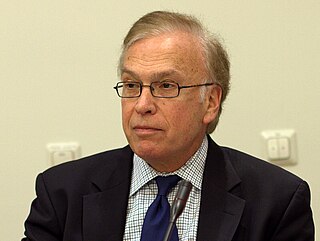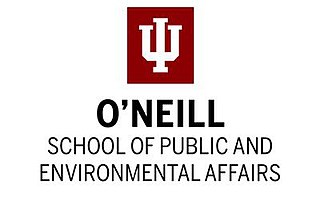External links
- Official site Archived 2010-05-27 at the Wayback Machine
- Masters in Public Policy Degree
The Johns Hopkins Institute for Policy Studies is a public policy school affiliated with Johns Hopkins University in Baltimore, Maryland. It seeks to improve the response of government, businesses, and nonprofit institutions locally, nationally, and internationally to such challenges as poverty, urban decline, and regional changes. Under the leadership of Don Steinwachs, it offers a Master of Public Policy and has 3 affiliated research institutes, 16 full-time faculty or research fellows and 8 joint faculty.
The University of Maryland Francis King Carey School of Law is the law school of the University of Maryland, Baltimore and is located in Baltimore City, Maryland, U.S. Its location places Maryland Law in the Baltimore-Washington legal and business community. Founded in 1816, it is one of the oldest law schools in the United States.

The Johns Hopkins Bloomberg School of Public Health is the public health graduate school of Johns Hopkins University, a private research university in Baltimore, Maryland. As the second independent, degree-granting institution for research in epidemiology and training in public health, and the largest public health training facility in the United States, the school is ranked first in public health in the U.S. News & World Report rankings and has held that ranking since 1994.

A public policy school is typically a university program, institution, or professional school that teaches students policy analysis, program evaluation, policy studies, public policy, political economy, urban planning, public administration, international relations, security studies, nonprofit studies-nonprofit management, political science, urban studies, intelligence studies, global studies, emergency management, public affairs and/or public management. Public policy schools typically train students in two streams. The more practical stream treats the master's degree as a terminal degree, which trains students to work as policy analysts or practitioners in governments, government relations, think tanks, business-to-government marketing/sales, and consulting firms. A more theoretical stream aims to train students who are aiming to go on to complete doctoral studies, with the goal of becoming professors of public policy, political science in general, or researchers.
The School of Public and International Affairs (SPIA) at Virginia Tech offers graduate and undergraduate education in the fields of public administration, public policy, international affairs, urban affairs, and urban & regional planning. It has three campuses throughout Virginia: Arlington; Blacksburg and Richmond.
The Maryland School of Public Policy is one of 14 schools at the University of Maryland, College Park. The school is located inside the Capital Beltway and ranks 16th nationally for schools of public policy according to U.S. News & World Report (2012).
The Graduate School of Public and International Affairs (GSPIA) is one of 17 schools comprising the University of Pittsburgh. Founded in 1957 to study national and international public administration, GSPIA prides itself on its "Local to Global" distinction. As of 2018, it is one of only two policy schools with programs in the top 20 for both International Relations and City Management and Urban Policy. The former mayor of Pittsburgh, Bill Peduto, is a GSPIA alumnus.

The McCourt School of Public Policy is one of ten constituent schools of Georgetown University. The McCourt School offers master's degrees in public policy, international development policy, policy management, data science for public policy, and policy leadership as well as administers several professional certificate programs and houses fifteen affiliated research centers. The McCourt School has twenty-one full-time faculty members, ten visiting faculty members, more than one-hundred adjunct faculty members and approximately 450 enrolled students across the various degree and executive education programs.

Lester M. Salamon was a professor at Johns Hopkins University. He was also the director of the Center for Civil Society Studies at The Johns Hopkins Institute for Health and Social Policy Studies. Salamon has written or edited over 20 books in addition to hundreds of articles, monographs and chapters that have appeared in Foreign Affairs, The New York Times, Voluntas, and numerous other publications. He was a pioneer in the empirical study of the nonprofit sector in the United States, and is considered by many experts in his field to have been a leading specialist on alternative tools of government action and on the nonprofit sector in the U.S. and around the world.
The Zanvyl Krieger School of Arts & Sciences is an academic division of the Johns Hopkins University, a private research university in Baltimore, Maryland. The school is located on the university's Homewood campus. It is the core of Johns Hopkins, offering comprehensive undergraduate education and graduate training in the humanities, natural sciences, and social sciences.

The Johns Hopkins Carey Business School is the graduate business school of Johns Hopkins University, a private research university in Baltimore, Maryland. It was established in 2007 and offers full-time and part-time programs leading to the Master of Business Administration (MBA) and Master of Science (MS) degrees.

The Paul H.O'Neill School of Public and Environmental Affairs is the public policy and environmental studies school of Indiana University with locations on both the Bloomington and Indianapolis campuses. It is the largest and highest-ranked public policy and environmental studies school of its kind in the United States. Founded in 1972, as the Indiana University School of Public and Environmental Affairs, it was the first school to combine public management, policy, and administration with the environmental sciences. O'Neill School Bloomington is the top ranked school of public affairs in the United States. The school received a facelift and expansion when the Paul O'Neill Graduate Center opened for classes in the Spring 2017 semester due to the growing influx of students. In 2019, the name was changed to the O'Neill School of Public and Environmental Affairs in honor of alumnus Paul H. O'Neill who served as the United States Secretary of the Treasury in 2001–2002.

The Andrew Young School of Policy Studies at Georgia State University houses the Criminal Justice & Criminology, Economics, School of Social Work, Urban Studies and Public Management & Policy departments. Georgia State University is the largest university in the state of Georgia.
The Pepperdine University School of Public Policy (SPP) is a Master of Public Policy (MPP) degree program, located in Malibu, California with summer classes offered in Washington, DC. It is one of four graduate schools at Pepperdine University. The MPP is customized with specializations in Applied Economic Policy, American Policy and Politics, International Relations and National Security, State and Local Policy, and Public Policy Dispute Resolution.
The Hopkins Center for Health Disparities Solutions (HCHDS), a research center within the Johns Hopkins Bloomberg School of Public Health, strives to eradicate disparities in health and health care among racial and ethnic groups, socioeconomic groups, and geopolitical categories such as urban, rural, and suburban populations.

The RGK Center for Philanthropy and Community Service is a research center at University of Texas at Austin located in the Lyndon B. Johnson School of Public Affairs. The teaching and research of the RGK Center are focused in the areas of nonprofit organizations, philanthropy, social entrepreneurship, and volunteerism.

The Bush School of Government and Public Service is an undergraduate and graduate college of Texas A&M University founded in 1997 under former US President George H. W. Bush's philosophy that "public service is a noble calling." Since then, the Bush School has continued to reflect that notion in curriculum, research, and student experience and has become a leading international affairs, political science, and public affairs institution.

The Balsillie School of International Affairs (BSIA) is a centre for advanced research and teaching on global governance and international public policy, located in Waterloo, Ontario. As one of the largest social sciences initiatives in Canada, the school is a collaborative partnership between the University of Waterloo, Wilfrid Laurier University, and the Centre for International Governance Innovation. The BSIA is an affiliate member of the Association of Professional Schools of International Affairs, a group of schools that educate leaders in international affairs. The BSIA is housed in the north and west wings of the CIGI Campus. Admission to BSIA is highly selective.

The College of Arts, Humanities and Social Sciences at the University of Maryland, Baltimore County (CAHSS) has 22 departments, and offers 30 Bachelor's, 16 Master's, and 6 Ph.D. programs. The college also includes several scholarship programs; the Linehan Artist Scholars Program, the Humanities Scholars Program, and the Sondheim Public Affairs Scholars Program. The college oversees several centers; the Dresher Center for Humanities, the Imaging Research Center, and the Maryland Institute for Policy Analysis and Research.
The University of Maryland, Baltimore County (UMBC) features a variety of research centers and institutes both based on the campus and affiliated with other academic institutions. These centers and institutes listed below seek out to expand their research, educate, and promote partnerships between the university and the Baltimore-Washington Metropolitan Area and beyond.

The Maxine Goodman Levin College of Urban Affairs (Levin) is an accredited college of urban studies, public administration, urban planning, environmental studies, and nonprofit management at Cleveland State University located in Cleveland, Ohio. The Levin College offers undergraduate, graduate, and doctoral degrees, as well as professional development programs. Its urban policy research centers and programs provide communities with decision-making tools to address their policy challenges. The Levin College is recognized for offering highly ranked programs in urban policy, local government management, nonprofit management, and public management and leadership.